
Who hasn’t considered starting their own online business?
Do a quick internet search for “how to start an online business” and you’ll find a wealth of platforms available to help get you started—Shopify, Squarespace, and the list goes on and on. But if your business idea is centered around video, audio, or images, you’ll need to search beyond the standard tools. Something built for a standard consumer-focused storefront almost certainly wasn’t built to manage large numbers of huge files.
Here at Backblaze we’re working with a growing number of entrepreneurs who are scaling their dreams by using Backblaze B2 Cloud Storage to fuel media-oriented online businesses. And today, we’re sharing a conversation we had with Backblaze customer Andrew Knox, who built the industry’s largest independent music licensing marketplace using cloud services.
A performer and composer in his own right, Andrew worked for years as a matchmaker between artists who wanted to be discovered, and filmmakers, ad agencies, and other creatives searching for the perfect music for their next production. After seeing an opportunity in the music licensing market and finding media-capable cloud services, he launched Kontent Core, a music service that not only connects musicians, music labels and creatives, but also helps them navigate complex licensing negotiations—all built without him having to buy and maintain any servers or storage of his own.
Choosing To Launch a Business with Zero CapEx
Janet Lafleur: Many thanks for taking the time, Andrew. So, to start, tell us what music licensing was like in the dark ages, that is: before Kontent Core?
Andrew Knox: It was a heavy paper pushing, phone calling, CD filing and brain hurting task that took a lot of time. The entire music catalogue from over 15 publishers from the past 30 years was logged in my head. Now I can access 80 different catalogues with over 2.5M tracks without having to remember which CD number the track I’m thinking of was on. It makes it a lot easier to do my job quickly and efficiently: Now, you can get licensing rates as well as find the perfect track even when your head is a little foggy trying to remember where you stumbled upon it yesterday.
JL: Sounds like a huge improvement, but take us from point A to B. What pushed you to launch the business? Was it how manual everything was in the past? Or something else?
AK: It was competition. There was a platform that was launched that disrupted the industry in a negative way. All of my friends and clients (and friends who are also clients) said that I should create my own platform. They were familiar with my process, and knew I could develop a better system that would be more business friendly for artists and publishers and users.
JL: Okay, let’s talk about the early days of Kontent Core. We understand that your friends were urging you to launch this service. How did you know that you wanted it to be a cloud-based operation?
AK: It had to be cloud-based because there’s no other efficient way to deliver a ton of content to the user. In the old days, people used hard drives that they had to update themselves. I knew we had to be flexible so our clients could access content from anywhere in the world. For early stage companies the answer is pretty simple: Cloud is inexpensive and you don’t have to worry about anything breaking. I had a server for my studio and it lasted 5 years, then crashed. It was a waste of money.
Cloud is inexpensive and you don’t have to worry about anything breaking. I had a server for my studio and it lasted 5 years, then crashed. It was a waste of money.
JL: That makes sense. But there are a lot of cloud storage services out there, why did you choose Backblaze?
AK: Cloud storage is important because we have a lot of music that is sent to us every month and we need to easily keep it updated. Backblaze not only has great customer service but it is also very affordable, which is obviously valuable for our tight-margin business. We can keep costs down for our clients and we don’t have to charge our artists to be on Kontent Core because the costs work for us and our business model. Because of Backblaze, we can offer a free marketplace for our artists. That’s key because artists don’t have a lot of cash to pay for monthly storage to get their music heard by decision makers.
JL: So how do the artists actually get discovered? How does a potential licensee search for music on the site and share it with their team?
AK: There are several options. They can choose individual tracks, create playlists, or create a link to downloadable playlists and share all of the above via email. Many of our clients want to send downloadable links to their decision makers, but we need to make sure that the sharing stops there. We don’t want the music to get spread all throughout the universe. We are very protective of the content that is on our platform. Other sharing systems don’t have the security or care about the content that is being shared. We do because we are a professional platform.
JL: Once the licensee decides they like something enough to use it in production, how does Kontent Core manage the licensing and permissions?
AK: We act as agent for the music publishing companies that live on Kontent Core. The license is on our paper. All licensing and administration is managed via our patent-pending administration system. Everything is buttoned up. We are not an aggregator—we have agreements with all of the Kontent Core content creators. We also offer E&O insurance on every license so our clients can trust that every track is protected and we have their back if there’s ever any issue.
Because of Backblaze, we can offer a free marketplace for our artists. That’s key because artists don’t have a lot of cash to pay for monthly storage to get their music heard by decision makers.
JL: What does the marketplace actually look like? How many choices does a licensee have? How many artists and labels have you signed on?
AK: We have over 2.5M music and SFX tracks on our platform from over 70 professional and well known providers. Indie labels, Production Music, Individual artists and soon we will be adding beats and loops from reputable producers.
JL: Since you founded Kontent Core, you’ve also founded a remastering service to give clients’ audio content greater depth, definition, clarity and stereo imaging. Does ReMasterMedia also use cloud storage and cloud compute services?
AK: ReMasterMedia is a cloud-based audio mastering service we are providing for Kontent Core content creators to master their music tracks as well as other clients that want to master their music, podcasts, or commercials specifically for internet and broadcast distribution. Recently we partnered up with a radio station that uses our online service to optimize digital downloads before they play the songs on the air. We are looking into implementing storage capabilities with Backblaze for our ReMasterMedia clients to store their mastered files as well as leveraging it for other machine learning and AI capabilities.
JL: With cloud services you don’t have to predict how much storage or compute power your business will need because you’re not buying hardware. How important was that for you? Did you have any idea how much content you’d be hosting?
AK: We never know at a given time how much content we will be receiving from our content providers so knowing that we can easily scale up or down depending on the storage needs is very important. From a cost point of view, we don’t want to invest in storage that is just sitting there waiting for us to utilize it nor do we want to maintain it.
Knowing that we can easily scale up or down depending on storage needs is very important. From a cost point of view, we don’t want to invest in storage that is just sitting there, waiting for us to utilize it.
JL: And are your cloud costs predictable and affordable? Have there been any surprises?
AK: They are pretty stable. No surprises yet!
JL: What’s the most popular feature that you didn’t expect?
AK: Our budget search is amazing. Clients have certain budgets they need to work within and all they need to do is put in the data parameters and then start a search. Only music that will fit within their budget will be returned. We also have statistics directly connected to the front end of our platform so users can check and see anonymously what genres are popular, what type of clearances are being licensed the most, what are popular search words, etc. Data is king and we don’t hide it up in the castle.
JL: We’re definitely with you on that front. Keeping data available and useful is at the core of our service. But of course we’re dying to know, what’s next for Kontent Core?
AK: That’s top secret! Invest in us and we will tell you. We are currently raising funds to build version 2 of our platform which will increase our scalability, UI/UX, and provide more versatile content for different markets.
JL: All right, all right we’ll wait and see. What about what’s next for you? You’re a talented performer and composer, when you get done with your workday, what instrument do you pick up? And what are you working on?
AK: My main instrument is my voice. So I carry it with me all day and sing a lot of different themes. There’s always an original tune or two that I’m noodling around in my head so when I do have time one day to sit down and compose, my symphony will just easily pour out… or maybe it will be an opera or musical… who knows. I’m still noodling.
JL: What about us, then? If Backblaze wants to license a theme song, do you have any recommendations?
AK: Oh, what a great question. Here’s an easy answer: “Just Like Fire” by Pink, featured in the movie “Alice Through The Looking Glass.”
JL: Excellent, we’ll kick that around and see if people here are ready to adopt it. We have already had one song written in our honor, so there is a precedent for it…


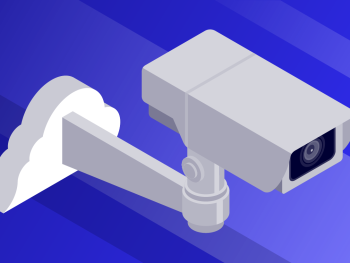

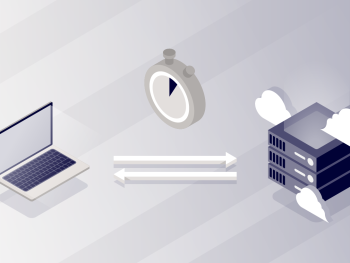
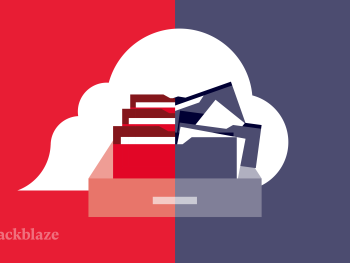
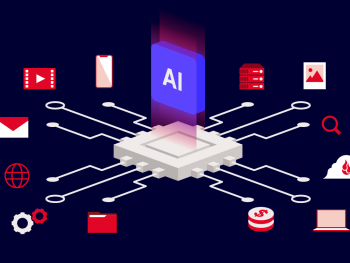
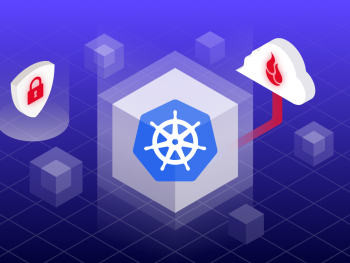
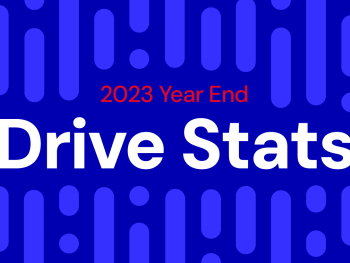
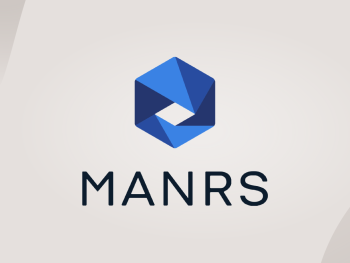
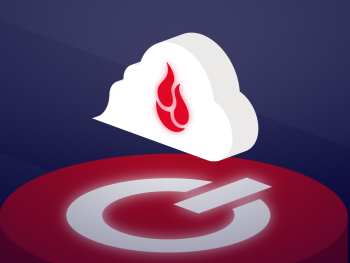
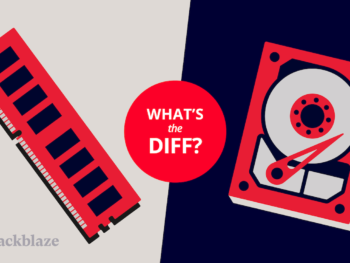
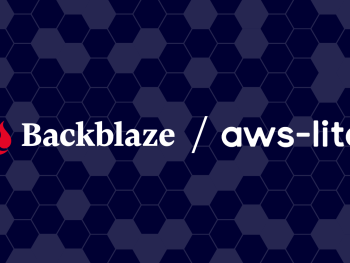
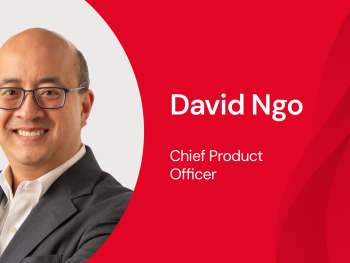
 To Buy, Or Not to Buy? CapEx Versus OpEx is the Question
To Buy, Or Not to Buy? CapEx Versus OpEx is the Question